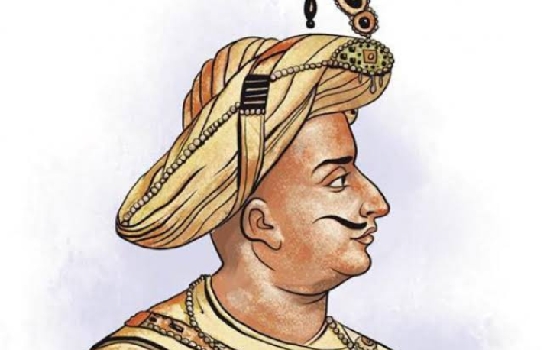
Mangalore, May, 26 : Is it a curse that's hit Mangalore? Why is it so much in the news in just the last two years for all the wrong reasons?...for vandalism, desecration of religious places, molestation and moral policing over young girls, for rent-a-riot shockers, and now for the deaths of 158 in a colossal tragedy caused by the ill-fated Air India Express crash at its Bajpe airport?
What has happened to Mangalore's fair reputation as a city that contributed immensely to the community and the country in the fields of education, health, banking and industry? The mishaps - are they just coincidence, or is there a reason?
A city of vivid contrasts, Mangalore unfolds an enchantment that never ends. Connected by road or rail, it is as eye-filling or more as by air, with its rolling hills, verdant vistas and sparkling streams gurgling to rendezvous with the larger rivers or the sea beyond - the smell of salt water getting ever stronger as the coast draws nearer.
As a kid I had picked up from family lore that the high lands in Bajpe where the Mangalore airport now exists were once all Pereira holdings - vestiges in the vicinity and around still exist with the family to warrant an occasional visit or two even now.
Despite all developments that modernity has ushered in, Mangalore has always been
A heady fragrance of the local jasmine, 'mallige', pervades the air throughout all seasons, against the acrid, acidic tang of cashew and all the fishy smells the sea breeze can pitch in. Not to forget the aroma of fine brewed south Indian coffee and the spicy coconut curries...and the no less heady spirit of toddy from the coconut or the palmyra, if not laced with the occasional whiff of 'feni', and even of 'sorro' - the crude country arrack.
Even so, Mangaloreans - considered a people unduly favoured and disproportionately blessed with extra intelligence of the fish-eaters - are known for their industriousness, enterprise and endeavour.
A heavily righteous, hard-working, hard drinking and innovative lot with perpetual ants in their pants; capable of generating wealth and prosperity to afford lifestyles that could be the envy of neighbours.
Mangalore's agrarian agricultural community learnt early to make money from the tile industry - Mangalore tiles have travelled the globe for millennia - while also venturing into the rugged terrains of the Western Ghats to take over when the British planters left their extensive coffee and cardamom plantations in the Malnad districts that overlooked the coastal plains.
Thanks to Basel Mission and Italian Jesuit fathers, since the 19th century not only local Christians but also the entire populace has enjoyed a better level of literacy, including higher education at famed institutions like St Aloysius - sought by aspirants from all over South India and most of Kerala.
Mangalore, during British Raj, boasted from within its ranks of perhaps more numbers in the erstwhile Indian Civil Service than any other community or region in the country.
The medical institutions of Mangalore are the ones sought after by patients from India and the world over.
In the 20th century, Manipal - then part of undivided South Kanara - also contributed heavily to the academic life of the region and the banking industry in the country.
Is it true then that Mangalore's troubles in known history started with the induction of the first-ever Bharatiya Janata Party (BJP) government in Karnataka?
The communal harmony which was the hallmark of the region was suddenly shattered Sep 14, 2008, when goons of the Bajrang Dal went on the rampage vandalising churches, assaulting Christians, and desecrating holy artefacts.
Mangalore has since then gone through a period beset by challenges not faced in 200-odd years of communal harmony.
The BJP government's neglect and reluctance to act against communal miscreants of 2008, despite nationwide and worldwide condemnation of the Sangh Parivar's heinous acts, has perhaps emboldened similar others in the region.
While the nation was celebrating Republic Day in January 2009, TV viewers across the country witnessed scenes from what was dubbed as Mangalore Horror - the infamous Sri Rama Sene and the likes of Pramod Muthalik involved in an assault on girls in Mangalore for visiting pubs.
And then the shocking "Rent-a-Riot" Tehelka expose in which the Sene's Muthalik again was trapped in a sting operation while accepting a contribution to the Hindutva cause for arranging a mob attack on a painter's exhibition.
Is the crash at Bajpe then just another manifestation of Mangalore's ill-fate that commenced with the BJP regime in the state - one that will smear more its blemished reputation as a cursed city?
a rambling, green, friendly town with no history ever of communal violence. A serene getaway off the beaten track for those with a laidback fun-loving attitude, Mangalore has narrow winding streets, lofty coconut trees, quaint gable-roofed houses, beautiful beaches, temples and churches that have warmed hearts.






Comments
Add new comment